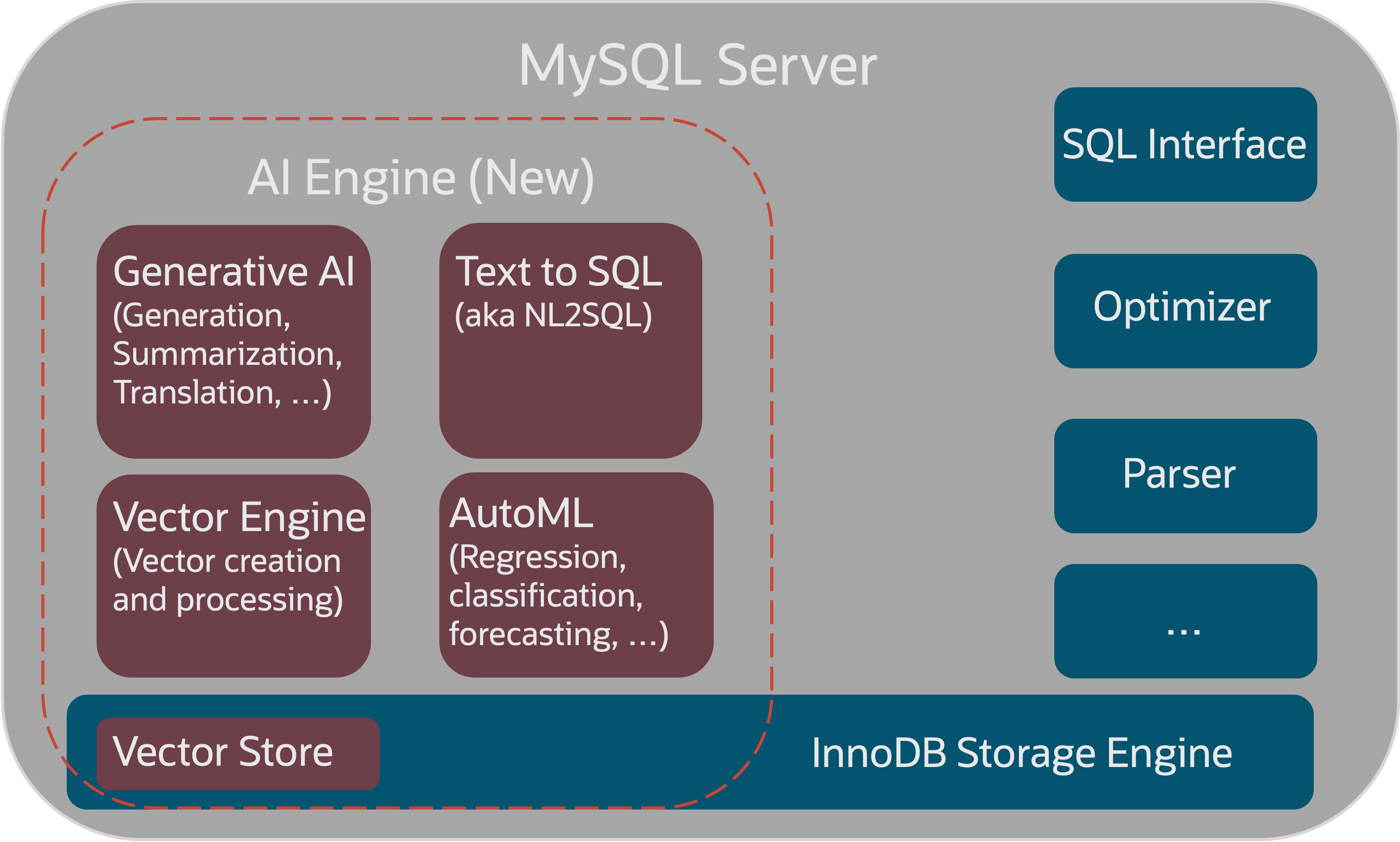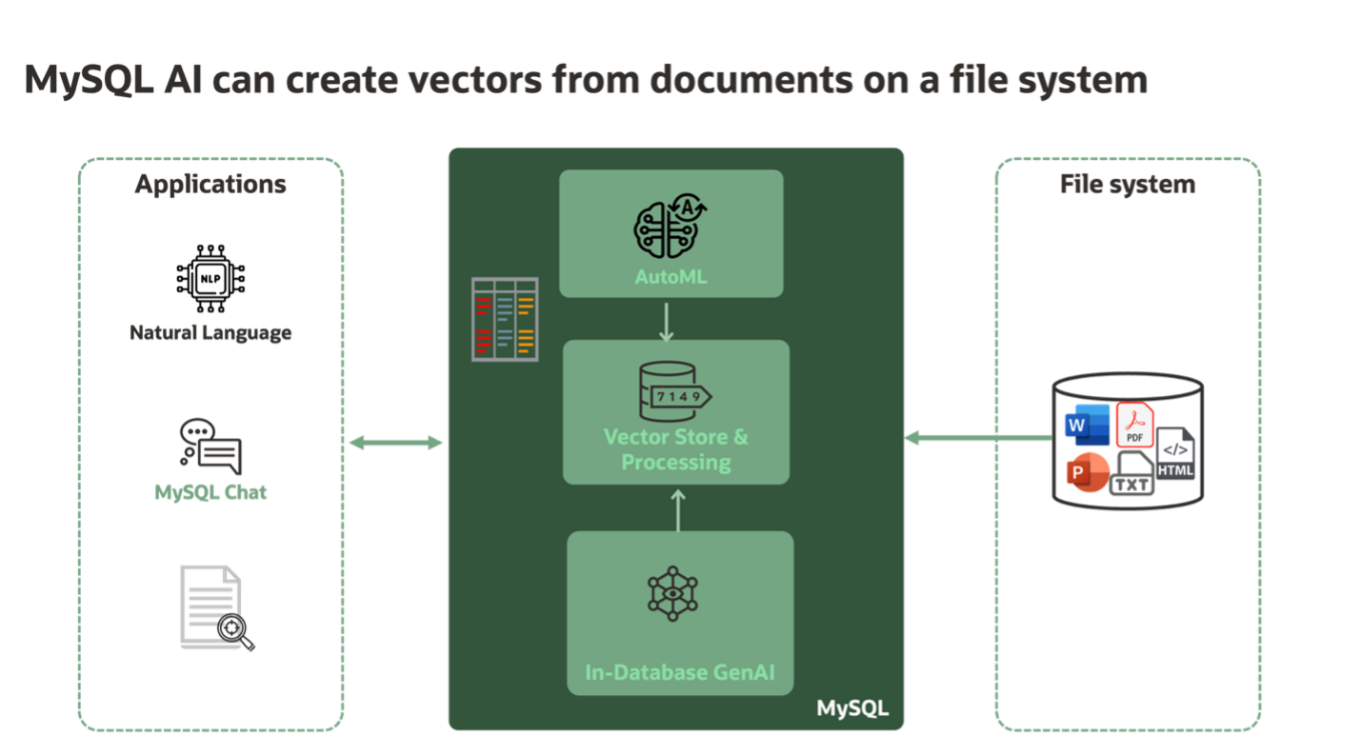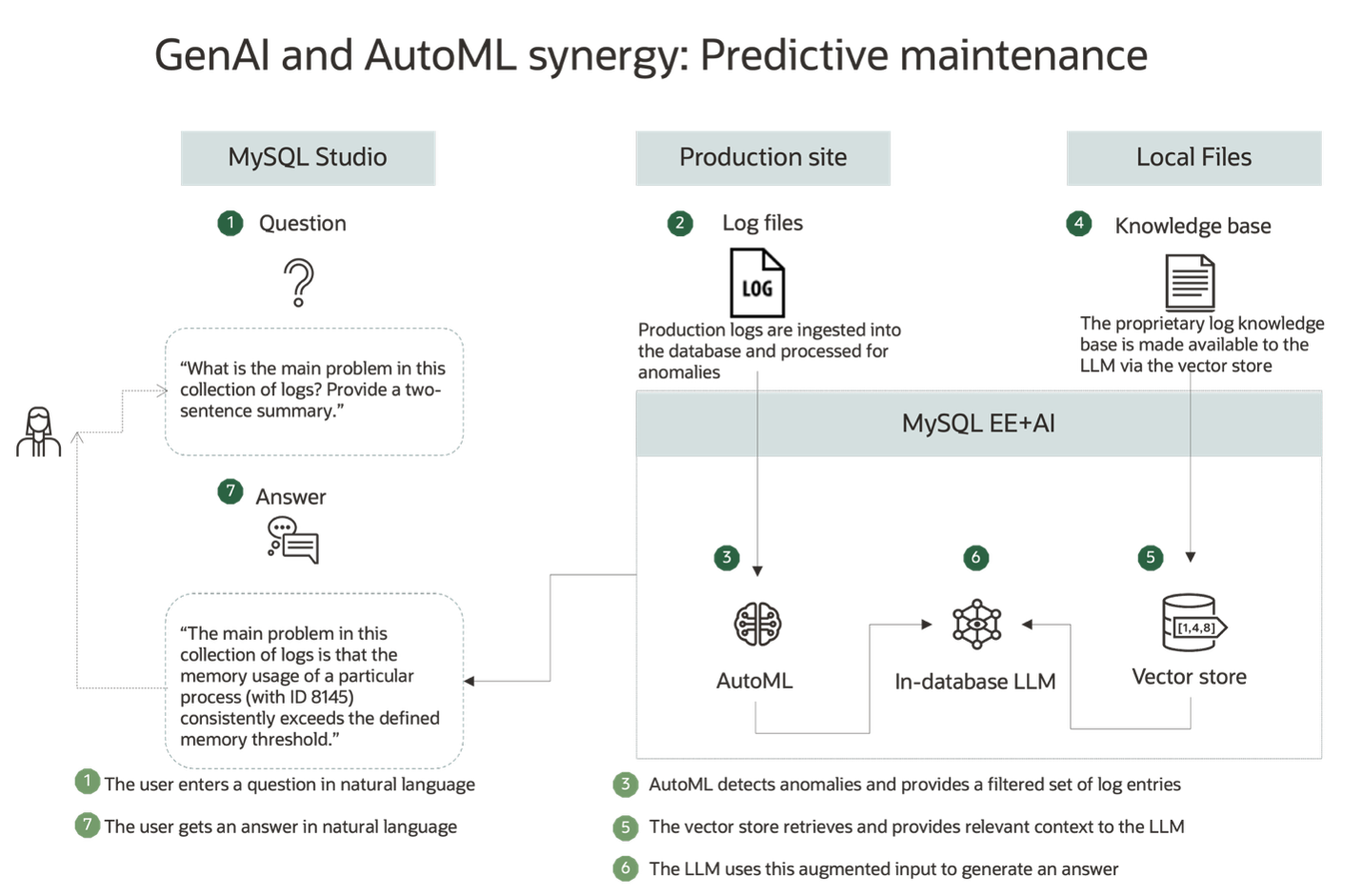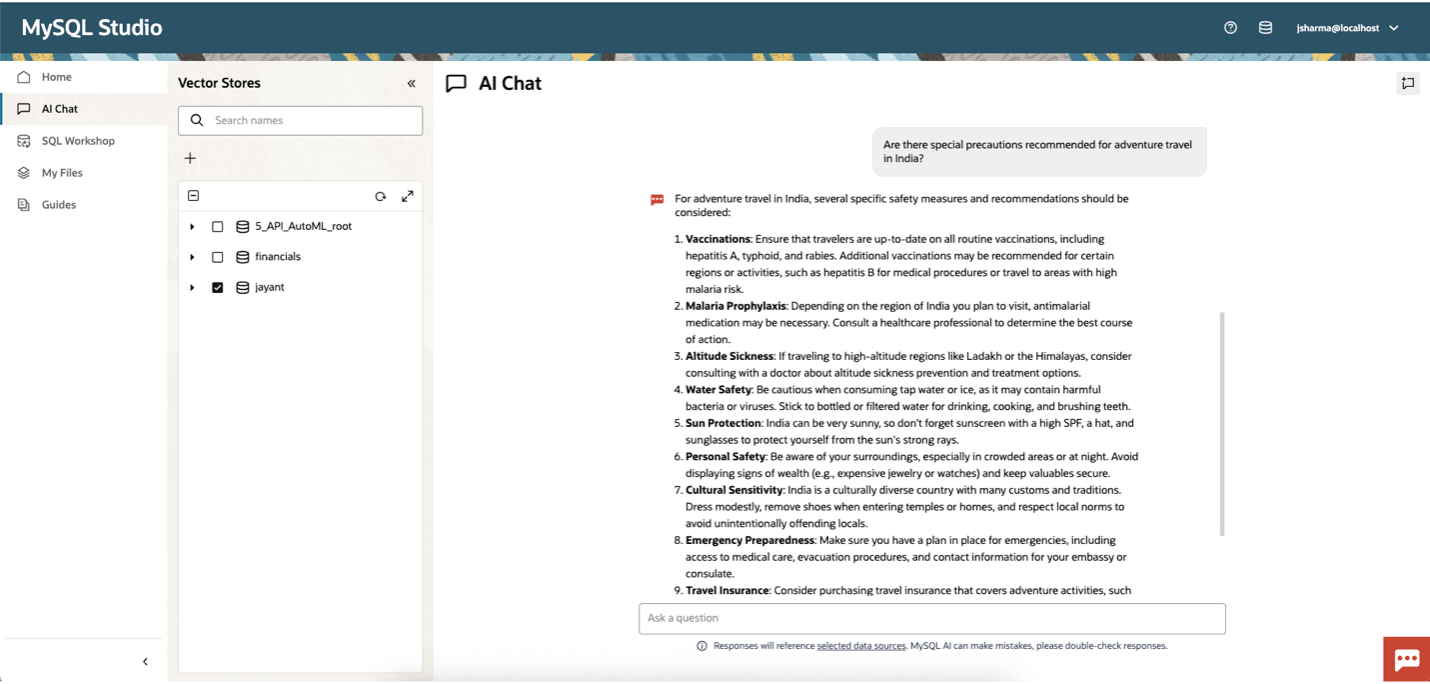MySQL is the most widely used open-source database. For over 30 years it has enabled organizations to run business-critical and scalable applications. It is the database of choice for visionary startups, small and medium-sized businesses, some of the largest enterprises run on MySQL. It is globally trusted for its reliability and ease of use.
As we celebrate our 30 Year anniversary, we are pleased to announce MySQL AI — it is an option of MySQL Enterprise Edition and provides built-in predictive and generative AI capabilities, including automated machine learning, in built LLMs, and a vector store so that you can incorporate AI in your on premise agentic applications using the familiar MySQL tools, frameworks and protocols such as MCP, and a MySQL Studio, a user friendly development environment.
MySQL AI enables a number of on-premise agentic workflows such as financial fraud detection for bank transactions stored on your servers, monitoring of store inventory and forecasting demand for goods, travel bookings for customers, to name a few. You can develop AI applications accessing data from the MySQL database or file system without requiring data movement or complex integrations, with the option to migrate the same application to MySQL HeatWave in the cloud for lower cost, better performance, richer functionality and higher quality LLMs.
Below are the key components of MySQL AI.

Generative AI
The Generative AI functionality enables users to extract accurate and contextually relevant information from their proprietary enterprise documents in local file systems, without AI expertise. It enables tasks such as translation, summarization, or develop applications like chatbots. You can easily generate concise and accurate summaries of documents in multiple languages, reports, and logs while keeping essential information private and secure. The built-in LLM use patented quantization and caching techniques for optimized execution on CPUs.
MySQL AI also provides a text to SQL functionality (aka NL2SQL) using the LLM to let you query your database content in natural language, whereby you can execute your database queries via a natural language.
Vector Engine (Vector Creation and Processing)
MySQL AI provides the capability to create vectors from documents in a local file system and store those vectors in a vector store in InnoDB. The creation of the vector store uses built in embedding models and has been optimized for CPUs. The automated embedding generation and built-in LLM let you search proprietary documents for accurate and contextually relevant answers—without moving data to a separate vector database. The vector processing enables sematic search using native SQL operators and is done at near memory bandwidth speed and scales with the number of cores.

Predictive AI using Automated Machine Learning (AutoML)
The AutoML capabilities in MySQL AI help you train, predict and explain models for classification, regression, forecasting, recommendation, anomaly detection, and topic modeling. It automates common training tasks such as algorithm selection, data sampling, feature selection, and hyperparameter optimizations so you can easily use ML on your MySQL data.
The built-in AutoML functionality enables use cases across multiple industries. For example, detecting patterns indicative of fraudulent activities in finance, analyzing sensor data to predict or prevent equipment failure in manufacturing, forecasting demand in energy, or personalized product recommendations in retail.
The combination of AutoML and GenAI enables novel use cases. For example, a high-tech manufacturing company uses it for predictive maintenance and quality control as outline in the diagram below. Engineers use AutoML to generate reports of anomalous entries in logs of production systems. They then use a chat interface to help to determine the root cause of the problem instead of manually analyzing the logs. This is made possible by retrieving additional context and relevant information from a proprietary, private knowledge base and providing an augmented prompt to the LLM for generating a useful answer.

JavaScript stored procedures support GenAI
MySQL provides native support for JavaScript stored programs within the database. This enables developers to write JavaScript code that interacts directly with MySQL data, using the provided GenAI APIs. This support facilitates pre-processing prompts and post-processing LLM responses using JavaScript’s string and JSON manipulation capabilities for tasks like sentiment analysis, summarization, and contextual conversations. Developers can build enhanced prompts using JavaScript’s strings and regex capability, or process LLM text output and even convert it into actions using JavaScript.

MySQL Studio
MySQL Studio is a new visual interface for MySQL AI which provides an intuitive, integrated environment with a SQL worksheet, a chat interface for querying documents in the vector store, and an interactive notebook for developing ML and GenAI applications. The interactive notebooks are compatible with Jupyter so developers can import existing ones for use with MySQL AI or share their notebooks and collaborate on ML and GenAI projects.

Summary
MySQL AI provides developers the ability to build rich applications with MySQL leveraging built in machine learning, GenAI, LLMs and semantic search. They can create vectors from documents stored in a local file system. Customers can deploy these AI applications on premise or migrate them to MySQL HeatWave for lower cost, higher performance, richer functionality and latest LLMs with no change to their application. This gives developers the flexibility to build their applications on MySQL EE and then deploy them either on premise or in the cloud.
Get a trial download from Oracle E-Delivery today.
Learn More at: https://oracle.com/mysql/enterprise
View the following videos:
- Introduction to MySQL Studio and using the vector store and notebooks
- A demo showing travel booking with Model Context Protocol (MCP) server for MySQLAI
View the documentation:
MySQL AI
MySQL Studio
